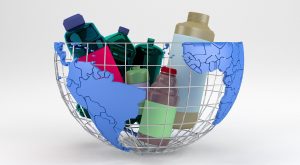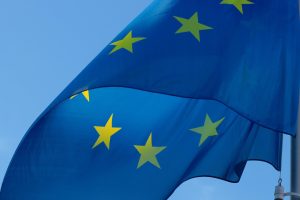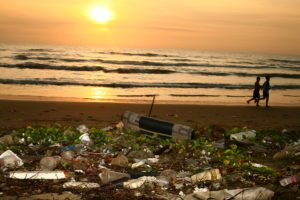The UN has pushed for a global treaty against plastic pollution, opening avenues for collaboration and cooperation among countries.
In early March 2022, 175 nations ratified the ‘End plastic pollution’ resolution, presented at the United Nations Environment Assembly (UNEA) within the United Nations Environment Programme (UNEP). This agreement aims to become the first global treaty to address plastic pollution that is legally binding for all countries. By mid-year, an Intergovernmental Negotiating Committee will be formed, which will be tasked with creating a draft agreement by 2024. If it materializes, it would be the most important international environmental resolution since the 2015 Paris Agreement or the 1989 Montreal Protocol, which enacted the elimination of ozone-depleting substances.
The problem of plastic pollution
According to UNEP figures, in 2021 global plastic production will exceed 460 million tons, doubling its level of two decades ago. At present, it is estimated that more than 140 million tons of plastic waste contaminate the planet’s rivers, lakes, and seas. Looking ahead, projections are that the conventional plastics chain could be responsible for 15% of greenhouse gas emissions by 2050. This would especially impact aquatic ecosystems, given that 85% of marine debris is produced because of plastics. In addition, the number of tons dumped each year into the seas and oceans could triple by 2040 and quadruple by 2050.
Other articles of interest: What types of plastics can be recycled and what are they used for?
The importance of the resolution agreed in Nairobi lies in the fact that it enables a commission to create a legally binding instrument that takes into account the entire life cycle of plastic worldwide. Addressing it implies not only taking measures to reduce and control the pollution levels of this material but also to limit the production of virgin plastic and encourage the reuse of plastic in the productive fabric thanks to recycling processes that increase its useful life and its use in different industries. In fact, the text states that the fight against plastic pollution is everyone’s task and underlines the responsibility of nations, companies and society itself to achieve it.
The objective is to create a legally binding instrument that addresses the entire life cycle of plastics
This is why companies such as REPETCO, which has been able to develop its own patented, environmentally friendly system for multilayer PET/PE food packaging, are committed to innovation. Through a unique process, rPET pellets and rPET are generated that can be reused in the food industry with multilayer PET/PE trays and sheet packaging; in bottles for soft drinks or detergents; and in fibers for the textile and automotive industries.
Promoting international collaboration
One of the milestones on which the resolution places most emphasis is on international collaboration to facilitate access to technology for plastic recycling and waste management and treatment. In fact, the text specifies that “national and international cooperative measures to reduce plastic pollution in the marine environment, including existing plastic pollution” should be promoted. It also calls for the preparation and submission of national action plans for the prevention and reduction of plastic use.
Development of national plans and collaborative pathways will be key to tackling plastic pollution
The resolution states that the creation of a financial mechanism will even be considered to help develop the measures to be included in the future treaty. In particular, it stresses that joint strategies should be developed to tackle microplastic pollution.
Other articles of interest: Food industry and recycling: keys to a successful partnership







